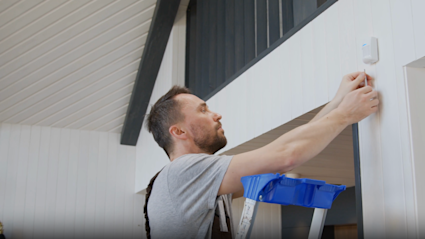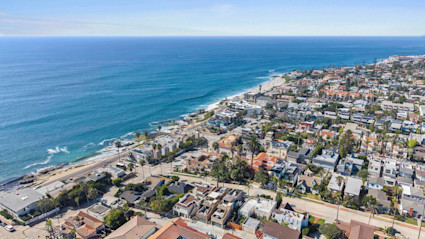What is a timeshare and how does it work?
It seems almost too good to be true: Own a piece of vacation heaven, a guaranteed yearly getaway, at what appears to be a pretty affordable price. That’s the promise of timeshares — shared ownership arrangements that give multiple buyers the right to use the same property for specific periods each year. But when you take a closer look at how timeshares work, you may find yourself with questions about their flexibility, long-term value or hidden fees. So, Before deciding, it’s important to understand what a timeshare really is and explore modern alternatives that offer real ownership and more freedom in your path to How do timeshares work? A timeshare is a shared vacation property ownership model, most often connected to hotels or resorts. Instead of one buyer owning the property outright, the ownership is divided among multiple people (typically up to 52) so each person has the right to use it for a set number of days or weeks per year. Think of it as purchasing time rather than the property itself. Owners don’t hold full real estate ownership but instead secure the right to stay in the same accommodation at recurring intervals. For example, if a unit is divided among 52 owners, each person usually gets one week of use annually. This arrangement makes vacation homes more affordable while guaranteeing consistent access to popular destinations. However, it’s important to note that timeshares generally tie you to a single property, unlike Here’s a closer look at the general steps that show how timeshares work: Real-world timeshare example Let’s say your family buys a timeshare property in If you vacation there for ten years straight, you’ll have spent $38,000 ($25,000 initial cost + $1,300 annual fee x 10 years) plus any additional maintenance fees. Divided across 140 nights (14 per year), that adds up to $271 per night, which may be cheaper than the cost of the room if you book on the resort’s website. The potential savings via a long-term contract are why some people find timeshares so appealing. The success of the timeshare model depends on each unit being owned by multiple parties, often dozens at a time. Owners don’t always live nearby either— the average distance between a timeshare and an owner’s primary residence is over 1,000 miles. According to a With so many options available, it helps to understand the different types of timeshares and how each one works. There are many types of timeshares, but most fall into two main contract structures. Deeded timeshares Deeded timeshares divide ownership of a property into smaller shares that reflect how long you can stay. For example, a property split into two-week intervals would have 26 owners. The most common model is a 52-part split, one for each week of the year. With a deeded timeshare, you hold real ownership that can be sold, willed to family, or transferred. Most timeshares in the U.S. are deeded. Right-to-use (lease) timeshares Right-to-use (RTU) or leasehold timeshares operate more like a long-term rental. Instead of owning a portion of the property, you lease the right to stay for a set number of years—commonly 20 to 99. Once the contract expires, your usage rights end. Like deeded models, you’ll still share the property with other owners, often up to 52 families. With an understanding of the two main types of timeshare contracts, let’s explore the three primary ways vacation time is divided among owners. To avoid a Ultimately, ask yourself: "Is this a place I want to stay year after year?" This can help you determine if a timeshare is right for you. Fixed-week timeshare Fixed weeks mean you’re locked into the same week every year (say, the third week in April). While this offers the predictability of always having your vacation secured at a specific time, it also means your travel dates are rigid. Changing your fixed week usually comes with a hefty price tag in the form of an upgrade fee, if it's even possible, making it less flexible for those whose schedules vary from year to year. Floating-week timeshare Floating weeks let you choose your week seasonally. This offers more flexibility than a fixed-week model, since you're not tied to the exact same dates every year. However, that flexibility comes with a trade-off: floating week systems are very competitive among timeshare owners, and the best slots during high season get snatched up quickly. You'll often need to book far in advance to secure your preferred dates. If keeping your Points-system timeshare Some timeshare properties operate with a points system where you “pay” for your stay with points, giving you greater flexibility in how you travel. This means you're not restricted to a single property or a specific time slot each year. Choosing an off-season, weekday stay or downgrading to a smaller room may cost fewer points overall, allowing you to stretch your points for more frequent, shorter getaways or save them up for something bigger. By contrast, you can also use points to upgrade components of your vacation, such as getting a bigger room or a better view — or even enjoy another How much does a timeshare cost? A timeshare's cost involves two main components: an initial purchase price and ongoing annual fees. In addition to the upfront payment, you'll be responsible for Be sure to check the terms of your timeshare contract before signing. This document should outline all of the one-time and ongoing costs, including: Financing a timeshare Banks typically do not offer loans for timeshares, leaving buyers with limited financing options outside of the timeshare company itself. With little competition, some companies rely on high-pressure sales tactics and may charge interest rates between 14% and 20%—significantly higher than most second-home loans on the open market. These factors can greatly increase the overall cost of a timeshare, making it crucial for buyers to carefully review the full financial commitment before signing any agreements. Using a What are the pros and cons of a timeshare? However, there are downsides to consider. Annual fees and special assessments can be costly, and selling a timeshare on the secondary market can be challenging if it’s no longer the right fit. The industry has also gained a reputation for high-pressure sales tactics. Additionally, timeshare ownership typically does not provide the financial benefits of traditional real estate, such as equity growth, What does exiting a timeshare look like? If a buyer eventually decides to sell their timeshare, recouping the initial investment and yearly maintenance fees can be difficult. While new timeshare sales continue to grow, the resale market is flooded, with While exiting a timeshare is notoriously challenging, there are six Learning each strategy’s associated costs and understanding which strategy works best for you will help streamline the overall process. What are some timeshare alternatives? With the high costs and limitations associated with timeshares, it’s recommended you first From second home co-ownership and vacation home ownership to vacation rentals, travel clubs, and resorts, each timeshare alternative comes with its own set of features. Options differ in flexibility, ownership structure, fees, and overall cost, allowing vacationers to choose what best fits their needs and lifestyle. What’s the difference between fractional ownership and timeshares? When comparing The benefits of fractional ownership become clear across factors like the number of owners, scheduling flexibility, equity, management, maintenance, building type, cost, and resale value. Fractional ownership generally means fewer owners, more flexible scheduling, and a share that can appreciate over time. Owners also enjoy the comfort of luxury vacation homes rather than individual units within hotels or resorts. What’s the difference between vacation clubs, timeshares, and second homes? The main Owning a second home — usually a vacation property separate from your primary residence — offers you the freedom to visit multiple times per year, potential property appreciation, and the ability to avoid the challenges of reselling a timeshare. How does Pacaso differ from timeshares? And should you decide to sell, you can sell at any time, at the price you set. Learn more about how co-ownership of a second home works with Pacaso and Here’s how traditional timeshares Benefits Pacaso offers With Pacaso, you enjoy the
Read












